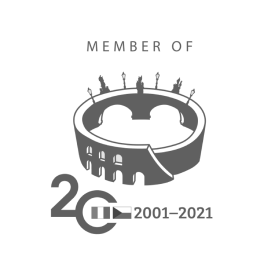
Prague’s strategic vision for affordable cooperative housing
The use of cooperative housing has a long tradition in both Prague and the whole Czech Republic. The earliest references date back to the 19th century. During the era of the First Republic, associations had not only a professional character but also a social and cultural impact. Their development was interrupted during World War II only to be restored after the conflict when this type of building played a key role in the reconstruction of destroyed housing stock.
During the 1950s, the housing sector saw a great boom, and a large number of apartments were built with financial assistance from the State and through housing cooperatives. Finally, during the 1980s and 1990s, cooperative apartments made up slightly less than half of the newly built prefabricated houses.
Nowadays, there are hundreds of housing associations on the territory of the Czech Republic, which ranks as one of the European countries with the largest number of cooperative apartments.
Cooperative housing in response to housing shortage
In response to the widespread housing crisis plaguing the local area, the city of Prague decided to join a cooperative aimed at developing affordable housing, proposing basic parameters as mandatory requirements. These were adopted by the City Council and require potential partners to be existing housing cooperatives with proven expertise in both the construction and management of cooperative housing buildings. The selected partners are expected to take responsibility for the construction of the building, as well as its related issues and management once completed. For this purpose, a competitive bidding process is conducted, culminating in the conclusion of a cooperation agreement between the city council and the selected entity.
According to the City Council, the construction with the participation of the city also enjoys political support. City Councilwoman Hana Kordová Marvanová, who is responsible for legislation, public administration, and housing support, affirmed that the availability of owned or rented housing in Prague has long been an unresolved problem, and therefore an affordable cooperative housing project could provide more affordable housing options.
In particular, the need for such a project emerged from the results of research showing that the average Prague citizen would have to work 14 and a half years without spending money on anything else to buy a new 70-square-meter apartment. Not only that, in recent times the sale prices of some apartments have further increased by more than 85 percent. To conclude, the Czech capital also turns out to be the last European capital in terms of housing availability.
A prerequisite on which the project is based is that the city makes land available to the cooperatives based on a surface right or lease. A large part of the apartments under the cooperative project are intended for those who are buying an apartment for housing purposes and who cannot afford housing at current prices in Prague, but at the same time do not meet the conditions for access to social housing. Cooperative housing therefore is not aimed at the purchase of properties intended to become shared housing like Airbnb. Apart from this, the city also intends to retain about a third of the apartments it makes available to support needy groups in the population.
The cooperative housing project, approved by the city council, could therefore offer an alternative solution to the current housing problems. However, it is not a unicum, because it is only the first pilot project which is part of a larger program to make housing affordable in this critical situation.
The new plan for future housing development in Prague
The Prague Institute of Planning and Development has published a new plan for the city’s future housing development that focuses on the construction of affordable and quality housing, an increase in the number of municipal apartments, and cooperation between the city and significant housing actors. Most of the new housing construction will take place on unused brownfield sites and suitable municipal land. The new housing strategy includes five priority areas of intervention: the construction of affordable and quality housing, the development of the municipal housing fund, sustainable housing for specific population groups, attractive housing throughout Prague, and cooperation between the city and key players. This strategy encompasses several specific targets, including the construction of 9,000 new flats each year, compared to the current 5,500. The number of municipal apartments should increase to a minimum of 35,000 by 2030 and the capital should have a minimum of 5,000 apartments for social housing.
The first cooperative housing project supported by the city will be realized near Radlická Street, in Prague 5. The residential block in Radlická will have a total area of 20,000 square meters and will consist of two blocks with separate entrances. The total number of flats will be between 221 and 266, with an average area of between 54 and 65 square metres. Residents will have to pay immediately a quarter of the price, while the remaining amount will be settled as a portion of the loan acquired by the cooperative from the bank for the construction. Applicants must have permanent residence in Prague and may not own any other housing. To repay the loan, the cooperative will additionally allocate funds to the municipal fund dedicated to affordable housing development, thereby reimbursing an initial investment toward future land acquisition.
The plan to support affordable cooperative housing was approved in December 2020 with the aim of providing a viable alternative to buying a property to live in. However, these cooperative housing projects will not be able to become mass constructions since the problem of limited land availability persists.
Sources: https://www.expats.cz, https://www.havelpartners.com/, https://praguemorning.cz/, https://www.finep.cz/




